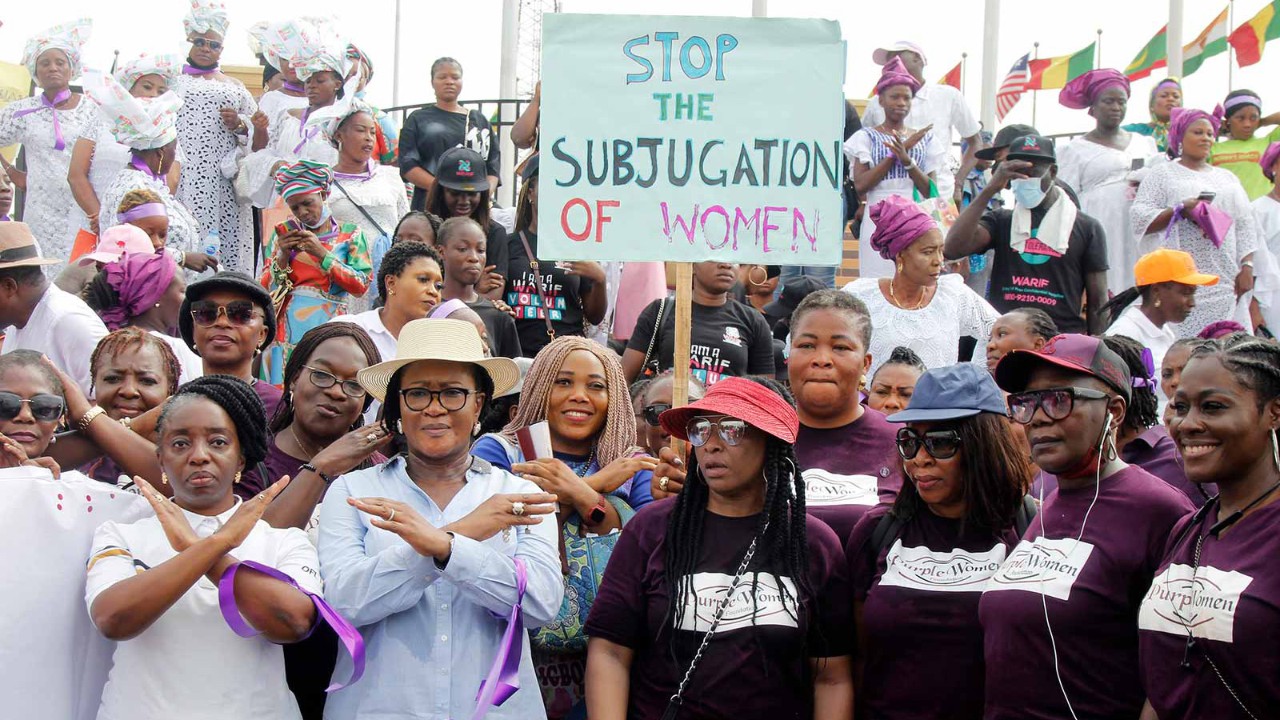
Women make up about 50% of the African population. Despite this, their representation in leadership remains low, at an average of around 24% of members of national parliaments in Africa.
However, this masks wide variation. In Rwanda, South Africa and Uganda, women make up 61%, 47% and 34% of members of parliament; in Ghana, Congo and the Gambia, meanwhile, the equivalent figures are 15%, 13% and 10%.
Nigeria fares particularly badly in the rankings, with women making up just 3.6% of parliamentarians. This goes some way to explaining the recent public response to parliament’s failure to approve groundbreaking gender legislation on 1 March. Included in the five bills were the reservation of parliamentary seats for women and the requirement for political parties to have female party leadership quotas of at least 35%. As a result, protestors occupied parliament; soon after, the House of Representatives rescinded the vote and it will shortly reconsider the bills.
The low representation story is the same for executive leadership positions. Of the 54 nations on the continent, only Ethiopia and Tanzania presently have female presidents. That of Ethiopia is largely ceremonial, as most of the executive powers lie with the prime minister, a man. Samia Hassan became Tanzanian president by default after the sudden death of her male predecessor.

Men in power appoint other men to powerful positions
Men in power appoint other men to powerful positions. This is the case in Nigeria, Congo and Ghana, where in 2020, females made up only 10%, 21% and 25% of cabinet ministers. Females, however, made up an encouraging 54% and 48% of cabinet ministers in Rwanda and South Africa respectively. Data on leadership in local and regional governments follow the same lines.
Patriarchal societies
This low participation of women in leadership may be driven by the patriarchal societies that African nations have historically been. Many still do not accept the idea of women in leadership. Also, cultural factors that have favoured men have meant that women often do not have the resources to effectively contest elective positions.
Women, however, comprise half of Africa’s population and make a significant contribution to economic and social wellbeing, and the continent must find a way to enable them to contribute to its development. Africa’s countries cannot let women continue in an unfair fight with men for leadership positions.
Quota question
In my view, this is why the idea of legislated quotas and seats specially reserved for women – as currently being discussed in Nigeria – is a good one. According to UN Women, over two-thirds of countries that have achieved 40% representation of women in parliament have done this. Rwanda’s 2003 constitution set aside a 30% quota for women in parliament, leading to the country having about the largest representation of women in political leadership in the world.
Kenya, Tanzania and Uganda have reserved seats for women, while Angola and Ethiopia have legislated quotas
Countries like Kenya, Tanzania and Uganda have also reserved seats for women, while others including Angola and Ethiopia have legislated candidate quotas. South African political parties have voluntary candidate quotas for women. These countries have much better gender balance in leadership than others.
What stands out is that all the countries that have relatively good female representation in political leadership have something in place to help make that happen. It is therefore a good thing that conversations around this have begun in laggards like Nigeria.
Growing voices
Such groups, as we have seen recently in Nigeria, are also raising their voices in Ghana and looking to address the imbalance by way of legislation. The United Nations Development Programme has expressed its support for efforts aimed at better gender balance in leadership in the country. Such voices are also rising in many other parts of Africa – music to the ears of swathes of Africans who believe in gender balance in leadership.
There is significant value in bringing women into decision-making positions and efforts must be made to do so in Africa. Opportunities must be created for more women to get into leadership and contribute more to the continent’s development.



